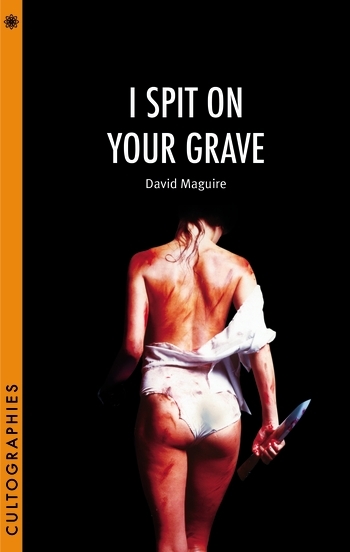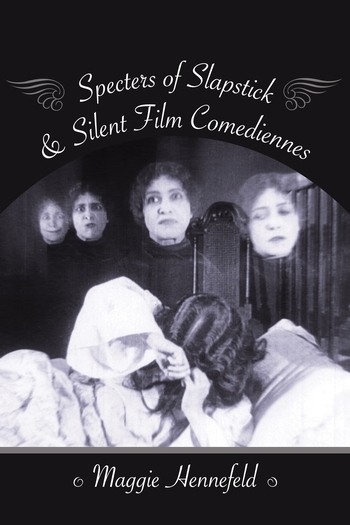Q&A with David Maguire on I Spit on Your Grave

This week, our featured book is I Spit on Your Grave. Today, we are happy to present an exclusive interview with author David Maguire!
Enter our book giveaway by Friday at 1 PM for a chance to win a free copy!
• • • • • •
Q: Why write a book about such a disturbing, polarizing film?
David Maguire: There is no denying that I Spit On Your Grave is one of the most controversial films ever made. From its unflinching subject matter (the brutal gang-rape of a beautiful career woman and her subsequent revenge), its battles with censors, critics, feminists and politicians have ensured that it is a film that continues to divide opinion and inflame passions. While its reputation would have been cemented by its unique position in the 1970s/80s exploitation era and the ‘video nasties’ scandal, it has also become mythologised by the countless rape-revenge films that have followed. Now, as the film celebrates its 40th anniversary and its director brings his much delayed sequel to the screen, the time is apt for a critical evaluation of this most notorious of films.
To fully understand the film’s growth from celluloid pariah to cult film, the book investigates not just the cultural, historical, social and political landscape into which the film was first released – and condemned – but also how it has inadvertently become ‘ground zero’ for the rape-revenge genre. The book explores how academic study has re-evaluated the film’s importance as a cultural statement on gender and the conflicting readings that this throws up. Crucial to this is an exploration of how feminist film theory has interacted with it over four decades, throwing up the fascinating dilemma of how a film with such a depraved subject matter can be both denounced by and claimed by feminists in equal measure. The fact that it was originally entitled Day Of The Woman only increases the value of such a study into the film’s reception.
While there is no escaping the notion that the film is clearly exploitative, the book argues that a major reason for its impact on popular culture is that the realistic treatment of its subject matter has ensured its longevity. By exploring the film’s official and unofficial franchises, and the status these films all have upon each other, the book also examines how the film has been updated to reflect contemporary issues in a post-9/11 world of vengeance and retaliation.
Q: Why now though?
DM: 2018 sees the film celebrate its 40th anniversary. It is also the year that its director, Meir Zarchi, will release its own direct sequel to it: I Spit On Your Grave: Déjà vu, followed by the documentary Growing Up With I Spit On Your Grave directed by his son, Terry Zarchi. The film is still written about daily around the world. Filmmakers pay homage to it each year. This year the French film Revenge opened at Sundance and its led character, Jen (an allusion to ISOYG’s protagonist Jennifer Hills) is raped and seeks vengeance. In light of its impact on film culture and the increasing number of pro-feminist reappraisals of the film – something which is in itself problematic in light of the clear exploitation route the movie went down and the (male) audience such productions are designed to appeal to – it is fitting that, 40 years on, Zarchi’s film is re-examined as an important part of cinema
Q: Why has the original film endured so?
DM: It is important to remember that from being part of the narrative in earlier films, I Spit On Your Grave has been instrumental in making rape-revenge the narrative. And unlike the eroticised route down which most rape-avengers strut, both the 1978 film and its 2010 remake have actually attempted to make serious comments about sexual violence. Similarly its notoriety has been cemented by its place in the UK’s video nasties scandal, and it has found a new lease of life on DVD and Blu-Ray – utilizing modern technology to its advantage just as the film did in the late 1970s/early 1980s when home video really took off. In the past 40 years there has also been a re-evaluation of the film by film feminists.
Q: What is so different about this book?
DM: This is the first book ever written on what is undoubtedly one of the most controversial films ever made. It investigates not just the historical, social and political landscape into which the film was released – and condemned – but also the influence the film has had on the entire rape-revenge genre, both in exploitation cinema and mainstream Hollywood. It is the first serious exploration of the official and unofficial franchises that the film has spawned, as well as its countless imitators, all of which highlight just how daring, creative and provocative the original was. It is the first book to fully analyse the film using fairy tales, folklore and mythology to explore the timelessness of its main message i.e. to warn women of the dangers of men.




